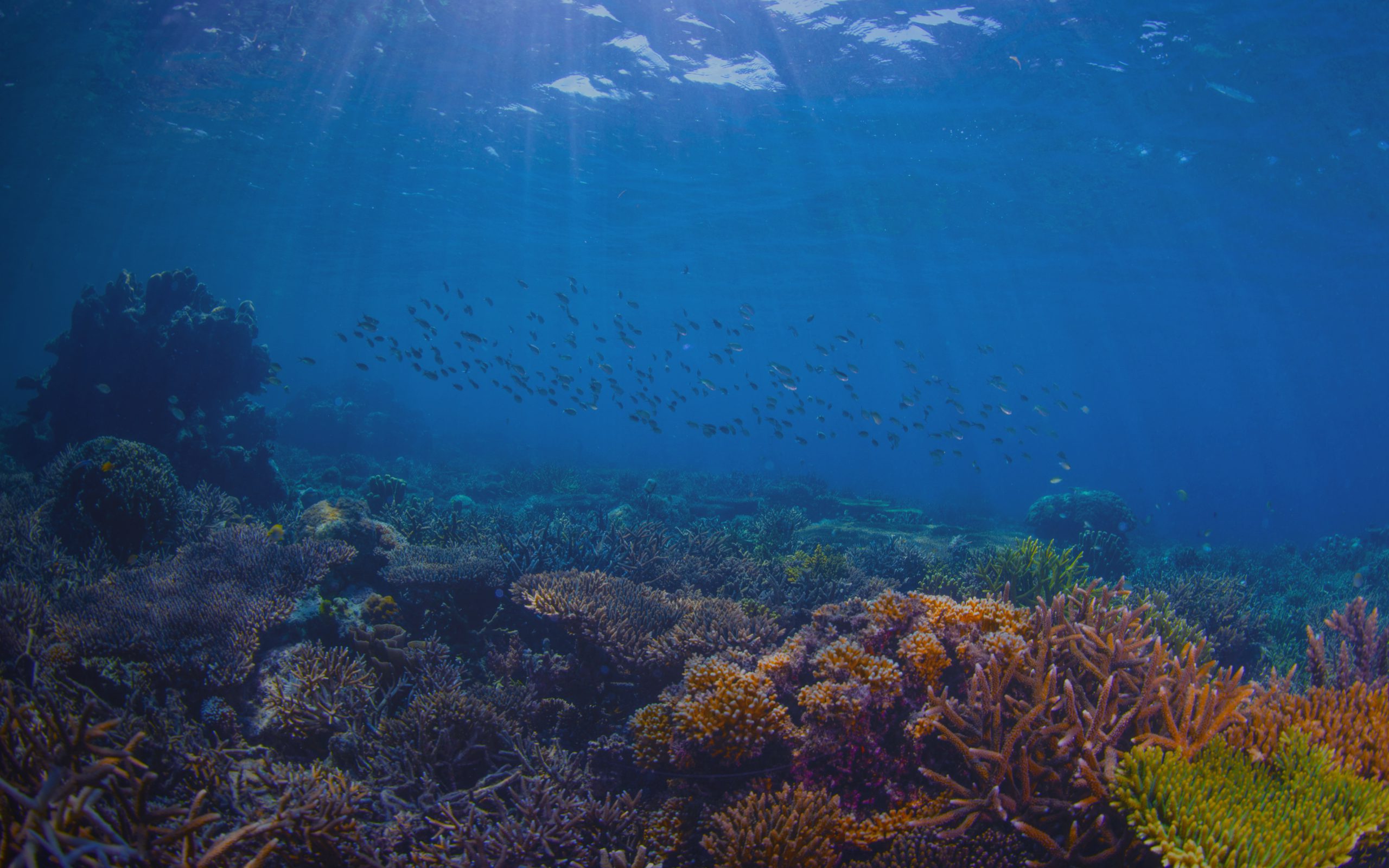
Impact Below Water
Working with local communities around the world, we have rebuilt 112,000 square metres of reef in the most biodiverse seas on the planet.
Before and after
At its most effective, the MARRS method can transform heavily degraded rubble fields into healthy coral-dominated ecosystems within a few years. Drag the slider below to see this for yourself, comparing illustrative examples of a degraded rubble field and a nearby restored reef, 3 years after Reef Star installation.
Mars, and partners, Impact in numbers
110000+
1300000+
87000+
72
35X
10X
7.5X

Published reports
We have a detailed monitoring program that regularly measures the progress of our restoration projects. Some of the outputs of this monitoring are detailed at these links to books and peer-reviewed journal articles. Explore more of our outputs on the resources page.
Geldard et al (2025)
Wave Attenuation by Restored Coral Reef Canopies: Implications for Coastal Protection
Alisa et al (2025)
Benthic communities on restored coral reefs confer equivalent aesthetic value to healthy reefs
Vida et al (2024)
Impacts of “Reef Star” coral restoration on multiple metrics of habitat complexity
Watt-Pringle et al (2024)
Survival rates of branching Acropora morphologies on coral rubble stabilization structures
Leung et al (2024)
A Practical Guide to Restoration and Rehabilitation of Rubble on Coral Reefs
Strudwick et al (2024)
Assessing how metal reef restoration structures shape the functional and taxonomic profile of coral-associated bacterial communities
Lendo et al (2024)
Carbonate budgets induced by coral restoration of a Great Barrier Reef site following cyclone damage
Suggett et al (2024)
Restoration as a meaningful aid to ecological recovery of coral reefs
Strudwick et al (2023)
Impacts of plastic-free materials on coral-associated bacterial communities during reef restoration
Lamont et al (2022)
HydroMoth: Testing a prototype low-cost acoustic recorder for aquatic environments
McArdle et al (2022)
Mars and Coral Reef Restoration: Learnings from 15+ years of trial and error
Lamont et al (2022)
Multi-dimensional approaches to scaling up coral reef restoration
Williams et al (2022)
Enhancing automated analysis of marine soundscapes using ecoacoustics indices and machine learning
Lamont et al (2021)
The sound of recovery: coral reef restoration success is detectable in the soundscape
Seraphim et al (2020)
Interactions between coral restoration and fish assemblages: implications for reef management. Journal of Fish Biology 97: 633-655.
Williams et al (2019)
Large-scale coral reef rehabilitation after blast fishing in Indonesia, Restoration Ecology 27: 447-456.
International Coral Reef Initiative
A summary of our restoration approach and progress on the ICRI website
Nature Portfolio
A discussion of our collaborative approach published by the Nature Portfolio

Next section
Impact Above Water
When we install Reef Stars, we don't just regrow coral. We invest in local community-led development programs.


